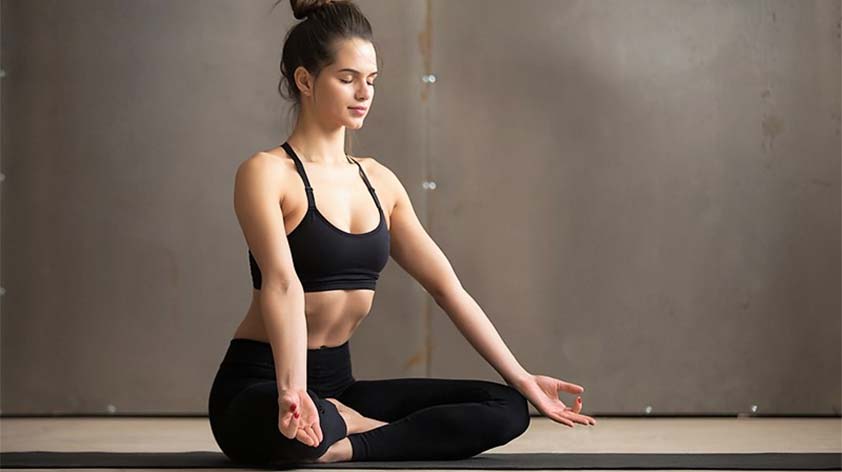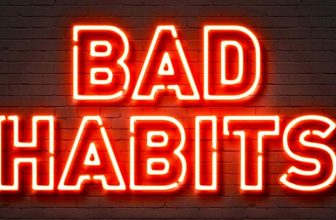
Breathing is something that happens automatically for you about 23,000 times a day without you even thinking about it -major miracle, and assuredly not merely a biological process! Research has shown that how you breathe can have a significant impact on your memory, heart function and other organs. There are several breathing/meditation techniques that integrate “systematic deep breathing” such as yoga. A university experiment found that participants observing an object while inhaling (instead of exhaling) remember that object more effectively later, not only that but people can better and faster read emotions accurately on a face they’re observing while inhaling. Interestingly enough, these positive effects only happen when you inhale through the nose, and don’t occur if breathing through the mouth. Fascinated? Curious? Then read on for these 5 Incredibly Useful Breathing Exercises!
1. Gym for the brain
Originally from Chinese Qigong (pron: Chi Gong) and Hindu (pranayama) traditions this breathing exercise or technique has been reported to have positive effects on people suffering from Alzheimer’s, and autistic children but it can benefit everyone. This easy brain squat exercise can also help alleviate mental dullness.
Crossed Squat Breathing Technique
Stand with your feet about shoulder distance apart, toes pointing forward. Hold your right earlobe between your left thumb and finger, I know this sounds strange but just go with it! Hold your left earlobe between your right thumb and finger. You should now be holding both earlobes with your arms crossed over your chest. Breathe in and squat down by bending your knees, lowering your body toward the floor. Go as low as you can comfortably manage and then breathe out as you raise yourself back up to a standing position. Repeat this squat exercise for 1 to 3 minutes while continuing to hold your earlobes, and making sure your breathing is synchronized with the squatting movement; breath in on the way down and out on the way back up. Three minutes per day is a very good start. Practice regularly and you’ll notice tremendous benefits in even only 7 days!
2. Blood oxygen and productivity
If you think you don’t have time to actually do yoga, this qigong practice is an easy exercise to perform that increases your oxygen and blood flow to your brain.
Gravity Exercise
Lie flat on your back and put your legs up on a chair (or something comfortable to rest your legs on without restricting circulation), and wear comfortable clothes. Laying in this position for just 10-15 minutes with full relaxed breathing will help refresh you and get you feeling more energetic and mentally sharp.
3. Breath to de-stress
Breathing affects your entire body and breathing exercises are an excellent way to reduce stress and tension. A full yogic breath can be experienced through deep, full inhalations and long, slow exhalations. When your mind is centered on your breath, your nervous system remains calm, there is less stress on your body and believe it or not, better digestion and elimination result. Fewer, but full-range breaths also help to reduce your appetite for physical sustenance (food) and keep your emotional states and senses under control. For those of you “beginner breathers” who are just starting out, this belly breathing exercise is an easy one to do for relaxation.
Belly Breathing
Sit or lie flat in a comfortable position. Put one hand on your belly just below your ribs and the other hand on your chest. Take a deep breath in through your nose, and let your belly push your hand out. Your chest should not move. Breathe out through pursed lips as if you were whistling. Feel the hand on your belly going in, and use it to push all the air out. Do this breathing 3-10 times. Take your time with each breath. Take note of how you feel at the end of the exercise.
4. Breathing to lower blood pressure
Harvard Medical School recognises the link between, breathing, stress and blood pressure and recommends deep breathing to improve it. The first exercise is called
Equal Breathing
You inhale through your nose and count to four, you then exhale and count to four. Over time, you can increase this cycle to eight in and eight out. Ideally, you would practice this exercise between 10-15 minutes per day. It has been shown that the beneficial effects are long-lasting, from something that only costs you 10 minutes of your day, is a no-brainer! If you don’t want to do it by yourself, there are many apps out there that actually teach deep breathing.
5. Breathing for depression (and for everything!)
Sudarshan Kriya Yoga
SKY, for short, has been shown to positively impact many things, such as stress, anxiety, Post-Traumatic Stress Disorder (PTSD), depression, stress-related medical illnesses, substance abuse, etc. Pennsylvania University demonstrated that it can even help to relieve severe depression in people who do not take antidepressants.
This breathing control meditation technique consists of several breathing-pattern cycles, and involves slow, calming, and rapid stimulating cycles. The cycles are named in India’s ancient metaphysical language, Sanskrit, as follows: Ujjayi (Victorious Breath), Bhastrika (Bellows Breath), Om Chant and Kriya (Purifying Breath).
Rather than be affected by the whirlwind of a hectic life of energy-draining breathing patterns, copy the slow, thorough breathing habits of the wise giant tortoise (that breathes 4 times per minute, and can live between 200-300 years!) and aim to take five to eight breaths per minute. Over time, with practice, this habit will lead to your prolonged lifespan which is largely free of disease. Start becoming aware of and counting your breaths, so you can live out your maximum term of life! Are you engaged in breath work? Let us know what changes you’ve noticed below, join in the conversation on Facebook and follow us on Twitter & Instagram. (Check out our previous yoga articles too, and let’s get your Fit ON for life!)









